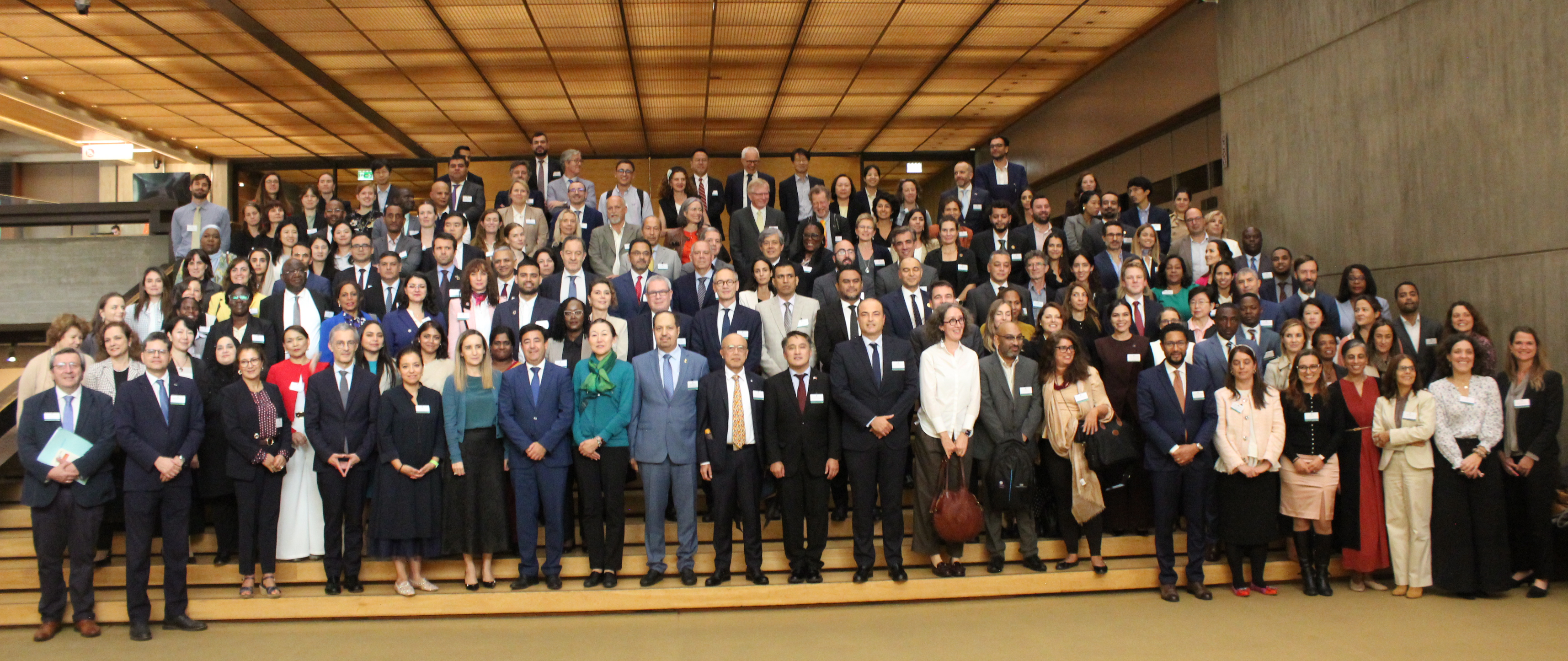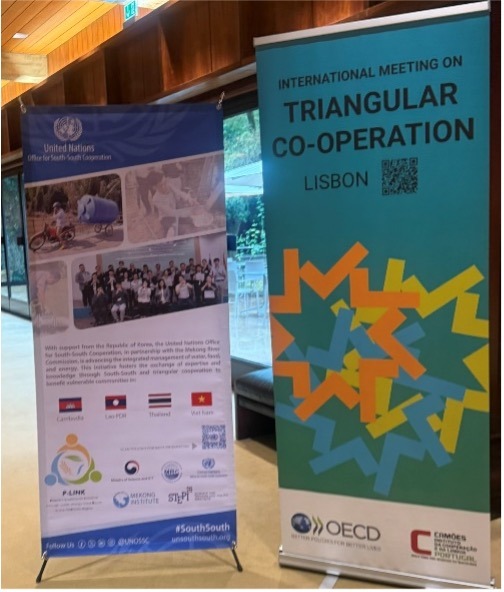
October 7-8, 2024 – The United Nations Office for South-South Cooperation (UNOSSC) officially launched the new Triangular Cooperation Window of the United Nations Fund for South-South Cooperation (UNFSSC), a platform designed to foster effective South-South and Triangular Cooperation strategies that drive targeted, impactful, and accelerated results. This announcement took place during the 8th International Conference on Triangular Cooperation, held in Lisbon, Portugal.
Co-organized by Camões, I.P., the Portuguese Development Agency, and the Organization for Economic Cooperation and Development (OECD), the conference brought together over 150 leaders and experts to explore how Triangular Cooperation fosters inclusive partnerships and local impact, especially in the face of global polycrises. The event, themed “Connecting Global Processes for Local Impact,” reviewed existing initiatives and sought new pathways for impactful collaboration.
UNOSSC Director Ms. Dima Al-Khatib emphasized the importance of collaborative partnerships: “We come together with a shared purpose, united in the objective of building stronger relationships through triangular cooperation partnerships. The Pact for the Future highlights South-South and Triangular Cooperation as essential mechanisms for advancing the digital economy, artificial intelligence governance, and science, technology, and innovation capacities in developing countries.”
Ms. Al-Khatib noted that the Triangular Cooperation Window aligns with the 2022 UN Secretary-General’s Report on the State of South-South Cooperation, creating a demand-driven mechanism that harnesses UN resources, technologies, and partnerships on a global scale, in line with Member States’ priorities.
Dr. Hwanil Park, Chief Director for the Division of Global Innovation Strategy Research at the Science and Technology Policy Institute (STEPI) of the Republic of Korea, spoke to the significant role of the ROK-UNOSSC Facility on STI since 2011: “The three phases of the ROK-UNOSSC Facility on STI exemplify the Republic of Korea’s commitment to supporting the Global South by sharing its socio-economic development experiences in response to partners’ specific needs.” Dr. Park highlighted that the Facility not only facilitated technology transfer and capacity-building for partner countries but also enabled Korean development stakeholders to gain valuable insights into the development priorities of these nations through direct engagement.


He shared insights on the achievements, lessons learned, and challenges of the Facility, and discussed the water-energy-food nexus initiative in the Mekong sub-region, a key component of Phase 3. “STI is an important catalyst for inclusive, sustainable, and resilient development,” he added.
The 8th International Meeting on Triangular Cooperation underscored the transformative potential of partnerships in addressing global challenges.
Read more about 8th International TrC Meeting: https://unsouthsouth.org/2024/10/10/connecting-global-processes-for-local-impact-8th-international-conference-on-triangular-cooperation/
